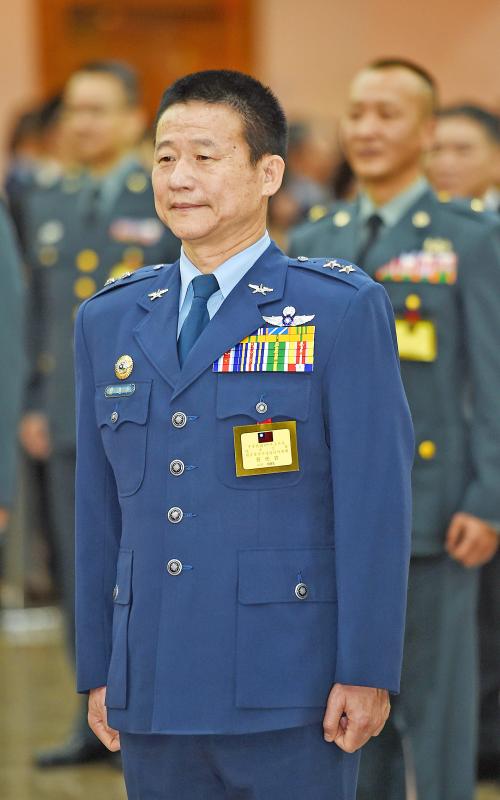A spate of cyberattacks originating from China could be preparations for an attempt to paralyze Taiwan’s key computer systems and public infrastructure to disrupt the inauguration of President Tsai Ing-wen (蔡英文) and vice president-elect William Lai (賴清德) on May 20, Ministry of National Defense officials and Democratic Progressive Party (DPP) Legislator Wang Ting-yu (王定宇) said yesterday.
Wang told a meeting of the legislature’s Foreign Affairs and National Defense Committee in Taipei that he has learned China was behind a spate of malware attacks this week that aimed to disable the computer system at Taiwan’s two major oil suppliers — state-owned CPC Corp, Taiwan and privately owned Formosa Petrochemical Corp — as well as IC testing and packaging firm Powertech Technology and some financial companies.
He cautioned Minister of National Defense Yen De-fa (嚴德發) and other ministry officials that the malicious attacks have been increasing in the past few weeks and that China would mount more coordinated attacks for a major escalation in the coming days to cause major disruptions or paralyze computer networks on May 20.

Photo: Liu Hsin-de, Taipei Times
Deputy Chief of the General Staff for Communication, Electronics and Information Tsao Chin-ping (曹進平) said that cyberattacks targeting the Web sites of government agencies or state-run companies could intensify in the buildup to the inauguration.
“The Chinese cyberarmy’s intrusion channels into these computer systems came through mobile storage devices and social media platforms. Our military units will bolster cybersecurity measures to defend against these types of hacking,” Tsao said.
National Security Bureau officials yesterday identified the sources of the cyberattacks as China and Russia.
These were likely coordinated cyberattacks and test runs by China to sabotage the presidential inauguration, they said.
China might be planning to paralyze Taiwan’s key government computer systems, impair its power supply and state utilities, and disable other major public infrastructure, the officials said.
An initial probe found that the hackers used Internet protocol addresses registered in Europe as springboards to implant backdoor programs and malware into servers at Taiwan’s health agencies, medical research centers and Centers for Disease Control offices to steal critical information and files, they said.
Wang also pointed to evidence indicating that Chinese cyberarmy units have targeted Taiwanese health agencies and medical research institutes working on a COVID-19 vaccine, adding that they have also targeted similar entities in the US.

Taiwan is stepping up plans to create self-sufficient supply chains for combat drones and increase foreign orders from the US to counter China’s numerical superiority, a defense official said on Saturday. Commenting on condition of anonymity, the official said the nation’s armed forces are in agreement with US Admiral Samuel Paparo’s assessment that Taiwan’s military must be prepared to turn the nation’s waters into a “hellscape” for the Chinese People’s Liberation Army (PLA). Paparo, the commander of the US Indo-Pacific Command, reiterated the concept during a Congressional hearing in Washington on Wednesday. He first coined the term in a security conference last

Prosecutors today declined to say who was questioned regarding alleged forgery on petitions to recall Democratic Progressive Party (DPP) legislators, after Chinese-language media earlier reported that members of the Chinese Nationalist Party (KMT) Youth League were brought in for questioning. The Ministry of Justice Investigation Bureau confirmed that two people had been questioned, but did not disclose any further information about the ongoing investigation. KMT Youth League members Lee Hsiao-liang (李孝亮) and Liu Szu-yin (劉思吟) — who are leading the effort to recall DPP caucus chief executive Rosalia Wu (吳思瑤) and Legislator Wu Pei-yi (吳沛憶) — both posted on Facebook saying: “I

The Ministry of Economic Affairs has fined Taobao NT$1.2 million (US$36,912) for advertisements that exceed its approved business scope, requiring the Chinese e-commerce platform to make corrections in the first half of this year or its license may be revoked. Lawmakers have called for stricter enforcement of Chinese e-commerce platforms and measures to prevent China from laundering its goods through Taiwan in response to US President Donald Trump’s heavy tariffs on China. The Legislative Yuan’s Finance Committee met today to discuss policies to prevent China from dumping goods in Taiwan, inviting government agencies to report. Democratic Progressive Party Legislator Kuo Kuo-wen (郭國文) said

Sung Chien-liang (宋建樑), who led efforts to recall Democratic Progressive Party (DPP) Legislator Lee Kun-cheng (李坤城), was released on bail of NT$80,000 today amid outcry over his decision to wear a Nazi armband to questioning the night before. Sung arrived at the New Taipei District Prosecutors’ Office for questioning in a recall petition forgery case last night wearing a red armband bearing a swastika, carrying a copy of Adolf Hitler’s Mein Kampf and giving a Nazi salute. Sung left the building at 1:15am without the armband and covering the book with his coat. Lee said today that this is a serious